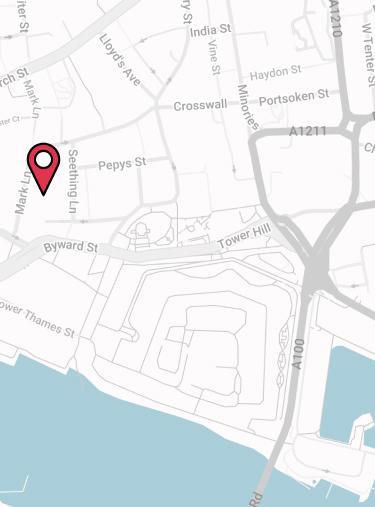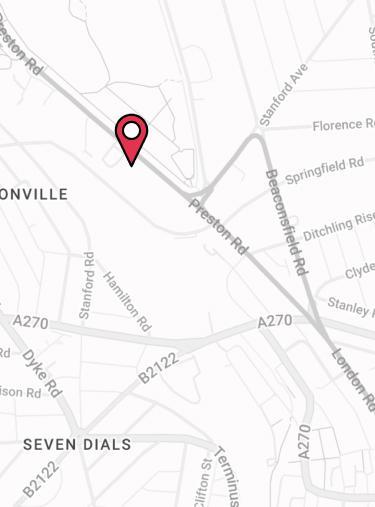IMPORTANT❗️
Our “best” insurer lists reflect our independent analysis of product features, service quality, and value. They are intended as a guide only – the right provider for you may differ depending on your needs and circumstances.
Finding the best Critical Illness Insurance in the UK can feel complex. Policies differ in how many conditions they cover, how they define those illnesses, and what additional benefits they include.
This 2026 guide reviews leading insurers side by side – highlighting claim rates, unique benefits and extra cover – so you can make an informed choice and secure the right protection for your circumstances.
What Do The Best Critical Illness Policies Cover?
The best Critical Illness policies will cover the widest range of conditions, with the option to add more. And some providers aren’t as strict when it comes to their definitions of each illness, meaning your claims are more likely to be successful. Most providers have a “core” policy and a “comprehensive” policy. Each one will offer a different extent of cover.
Core Critical Illness Cover
A core policy will tend to cost less and cover fewer conditions. The average number is typically around 35 or so critical illnesses. A core policy will cover conditions such as:
- Cancer (severe or advanced forms)
- Heart attack
- Stroke
- Alzheimer’s disease
- Parkinson’s disease, and Parkinson’s Plus syndromes
- Loss of a limb
- Major organ failure
- Permanent and irreversible loss of sight, hearing or speech.
Comprehensive Critical Illness Cover
Comprehensive policies can cover as many as 80 or 90 conditions in total. This might include 50 full conditions, which would pay out your total benefit. Insurers also tend to offer Critical Illness Cover for 30 or more less severe illnesses, which pay out a smaller, extra lump sum.
If you claim for one of these additional conditions, your full amount remains available for a claim in the future, should you need it. Comprehensive Critical Illness Cover often includes:
- Less advanced forms of cancer, such as carcinoma in situ of the breast, larynx, testicles and prostate
- Skin cancer
- Less severe heart surgeries
- Diabetes mellitus type 1
- Partial loss of hearing or sight.
Core Vs Comprehensive Cover: Which is Best?
We only ever recommend policies offering full cover to our clients. In our experience, the extra protection you get (for just a few pounds more per month) makes it more than worthwhile.
We’ve had people enquire with us about Critical Illness Cover and then apply on their own without taking advice. In one such case, a gentleman was sadly unable to claim for testicular cancer because he’d taken out a core policy for a lower premium. At the time, he wasn’t aware that less advanced forms of cancer weren’t normally covered by Critical Illness standard policies. We’re here to find you the right policy, so give us a call on 02084327333 or email help@drewberry.co.uk to talk through your options and get fee-free advice.
Which Critical Illness Insurance Is Best In 2026?
The UK has a few major Critical Illness providers to choose from, each with their own unique policy types, pricing structure, and underwriting process.
There’s no one-size-fits-all when it comes to insurance. The “best” product for you won’t necessarily be the best for someone else, as it all depends on your unique situation. That’s why it’s important to compare quotes and policies from different providers. And the cheapest quote isn’t always the best.
GOOD TO KNOW 🤓
As an FCA-authorised firm, you can trust Drewberry to guide you with integrity and knowledge. You can find us on the
Financial Services Register.
How We’ve Chosen Our Top Providers
As an independent insurance broker, we deal with a number of leading Critical Illness insurers every day. We’ve weighed up the key features and benefits of each provider’s Critical Illness offering to create this shortlist. Details we’ve compared include:
- Claims payout rates
- Number of conditions covered
- Defaqto rating and Trustpilot review scores
- Free policy benefits
- Optional policy add-ons
- Children’s cover included / available as an add-on.
Aviva
![Aviva Health Insurance Provider Logo]()
Aviva is one of the UK’s largest insurers, serving more than 20 million customers across the nation. They recently acquired AIG Life UK (now Aviva Protection UK) to strengthen their personal protection offering.
- Maximum payout: £1 million
- Illnesses covered as standard: 34 conditions
- Claims payout rate: 97.8% of all protection claims paid in 2024
- Children’s cover: Included as standard
- Defaqto rating: 5⭐
- Survival period: 10 days (after meeting definition)
- Additional benefits: Aviva DigiCare+: Annual health checks, Bupa 24/7 helpline, mental health support, personal nutritionists, bereavement and legal support.
Pros And Cons Of Aviva Critical Illness Cover
As of November 2025, Aviva currently has over 52,000 reviews on Trustpilot (73% of them giving 5⭐), giving them an average “Excellent” score of 4.3/5 stars. Note that this is for the company as a whole, rather than just the protection division.
Read our specialist review of Aviva Critical Illness Cover, or get a quote online in 60 seconds.
GOOD TO KNOW 🧐
We tend to recommend Aviva’s Critical Illness+ for our clients, as it offers greater protection – but it’s only available when you apply through a financial adviser. It’s fee-free to set up your policy with us, so call 02084327333 to get started.
Guardian
![]()
Many insurers have a long legacy, and Guardian is no exception. They were founded in 1821 and over the past two centuries, they’ve offered many insurance and financial products.
Guardian’s mission is to provide families with clear, comprehensive insurance policies that pay out quickly. They’re all about reliability and providing support when you need it most.
- Maximum payout: £3 million
- Illnesses covered as standard: 74 conditions
- Claims payout rate: 92% of Critical Illness claims paid in 2024
- Defaqto rating: 5⭐
- Children’s cover: Available as an optional extra
- Survival period: 14 days
- Additional benefits: HALO and Anytime: Claims support service, 24/7 GP, second medical opinion, emotional and physical wellbeing consultations.
Pros And Cons Of Guardian Critical Illness Cover
What Guardian Customers Say
As of November 2025, Guardian only has 4 reviews on Trustpilot (only one of them giving 5⭐), giving them an “Average” score of 3.5/5 stars.
Read our specialist review of Guardian Critical Illness Cover, or get a quote online in 60 seconds.
Legal & General
![]()
Legal & General is a large and well-established insurer in the UK market, serving over 10 million customers across the country.
- Maximum payout: Up to £3 million
- Illnesses covered as standard: 52 conditions
- Claims payout rate: 93% of Critical Illness claims paid in 2024
- Defaqto rating: 5⭐
- Children’s cover: Included as standard
- Survival period: 14 days from diagnosis
- Additional benefits: RedArc: Health and wellbeing assistance from registered nurses, available to policyholders as well as partners and children.
Pros And Cons Of Legal & General Critical Illness Cover
What Legal & General Customers Say
As of November 2025, Legal & General currently has over 26,000 reviews on Trustpilot (57% of them giving 5⭐), giving them an average “Excellent” score of 4.3/5 stars. Note that this is for the company as a whole, rather than just the protection division.
Read our specialist review of Legal & General Critical Illness Cover, or get a quote online in 60 seconds.
LV=
![]()
Liverpool Victoria (LV=) is a large provider of individual protection and financial products in the UK. Founded in 1843, LV started out as “The Liverpool Independent Legal Victoria Burial Society” and sold Life Insurance at the cost of a penny per month. Now with over 180 years of experience, it offers a range of protection products and has acquired over 1.28 million customers.
- Maximum payout: None specified
- Illnesses covered as standard: 38 conditions
- Claims payout rate: 95% of all personal protection claims paid in 2024
- Defaqto rating: 5⭐
- Children’s cover: Included as standard
- Survival period: 14 days
- Additional benefits: LV= Doctor Services: Virtual GP consultations, prescriptions, second opinion services, remote physiotherapy, remote psychological services, and discounted health MOTs.
Pros And Cons Of LV= Critical Illness Cover
As of November 2025, LV= currently has over 81,000 reviews on Trustpilot (80% of them giving 5⭐), giving them an “Excellent” score of 4.5/5 stars. Note that this is for the company as a whole, rather than just the protection division.
Read our specialist review of LV= Critical Illness Cover, or get a quote online in 60 seconds.
Royal London
![]()
Royal London is the UK’s largest mutual life, pensions, and investment company, owned by its members rather than shareholders. With over 2.3 million members, it’s known for its customer-first approach – scoring highly on review sites.
- Maximum payout: £3 million
- Illnesses covered as standard: 46 conditions
- Claims payout rate: 89.7% of Critical Illness claims paid in 2024
- Defaqto rating: 5⭐
- Children’s cover: Available as an optional extra
- Survival period: 10 days
- Additional benefits: Helping Hand: Mental wellbeing services, 24/7 virtual GP, virtual physiotherapy, second medical opinion, bereavement support.
Pros And Cons Of Royal London Critical Illness Cover
What Royal London Customers Say
As of November 2025, Royal London currently has over 4,500 reviews on Trustpilot (77% of them giving 5⭐), giving them an “Excellent” score of 4.6/5 stars. Note that this is for the company as a whole, rather than just the protection division.
Read our specialist review of Royal London Critical Illness Cover, or get a quote online in 60 seconds.
Scottish Widows
![]()
Part of the Lloyds Banking Group, Scottish Widows is one of the UK’s oldest financial institutions, founded in 1815. With over 200 years of experience, they have built a strong reputation for stability and customer care, offering a wide range of protection, pension, and investment products.
- Maximum payout: £3 million
- Illnesses covered as standard: 30 conditions
- Claims payout rate: 98% of all protection claims paid in 2024
- Defaqto rating: 5⭐
- Children’s cover: Included as standard
- Survival period: 10 days
- Additional Benefits: Scottish Widows Care: 24/7 virtual GP, dedicated personal nurse, trauma and bereavement support, second medical opinions, mental health support.
Pros And Cons Of Scottish Widows Critical Illness Cover
What Scottish Widows Customers Say
As of November 2025, Scottish Widows currently has over 10,000 reviews on Trustpilot (71% of them 5⭐), giving them an “Excellent” score of 4.5/5 stars. Note that this is for the company as a whole, rather than just the protection division.
Read our specialist review of Scottish Widows Critical Illness Cover, or get a quote online in 60 seconds.
Zurich
![zurich]()
Zurich Insurance Group is a global insurer with over 150 years of experience, serving customers in more than 200 countries.
- Maximum payout: £5 million
- Illnesses covered as standard: 41 conditions
- Claims payout rate: 90% of Critical Illness claims paid in 2024
- Defaqto rating: 5⭐
- Children’s cover: Available as an optional extra
- Survival period: Not specified
- Additional benefits: Zurich Accelerate: Virtual consultant, private diagnostics, second medical opinion, cancer support, global treatment options.
Pros And Cons Of Zurich Critical Illness Cover
As of November 2025, Zurich currently has over 3,300 reviews on Trustpilot (61% of them 5⭐), giving them an “Average” score of 3.6/5 stars. Note that this is for the company as a whole, rather than just the protection division.
Read our specialist review of Zurich Critical Illness Cover, or get a quote online in 60 seconds.
IMPORTANT❗️
We have taken care to ensure that information in this review is accurate. However, the market changes frequently, and we do not guarantee 100% accuracy and accept no liability for any losses.
Our specialist in-depth review of each of the UK's leading providers
How To Choose The Best Critical Illness Cover
Finding the “best” Critical Illness Insurance will depend on your unique needs. Here are some aspects to consider.
Step 1: Think About Your Personal Circumstances
Your best Critical Illness policy depends on factors like:
- Whether you’re employed, self-employed, or a contractor
- Your existing cover, such as personal Income Protection or Critical Illness Cover through your employer
- Your family situation, and whether you’d want your children covered as well as yourself.
If you already have certain benefits, you might not need to double up on cover – but gaps are common, especially for the self-employed.
Step 2: Compare the Key Features
When comparing policies, look closely at:
- Maximum benefit
Most insurers will allow you to cover yourself for up to £3 million, but ranges vary depending on the provider
- Partial payouts
Some illnesses need to be of a certain severity (outlined in your policy documents) before an insurer will pay out. A number of providers offer partial payouts, paying out on a sliding scale if you don’t quite meet the definition for a full claim
- Policy definitions
Each insurer defines medical conditions differently, and some have better definitions than others. Most insurers need you to meet a certain severity or treatment in order to claim, but others may be more general. (However, all insurers must meet the ABI’s model definitions of conditions)
- Total permanent disability
This feature pays out if you become completely and permanently disabled. Most providers include this as standard, but others may charge extra
- Children’s cover
All providers offer the option to cover your children against critical illnesses – some as standard, others as a paid add-on. Be sure to check age limits too, as some insurers will stop cover at 18, while some go up to age 23
- Additional benefits
Most protection policies come with a suite of additional services included alongside your core cover. These usually include perks such as: Virtual GP services, mental health support, second medical appointments, and rehabilitation support – but will differ between providers.
Step 3: Understand the Cost
The price of Critical Illness depends on your age, health, benefit size, and policy type.
Premiums vary a lot between providers, so always get multiple quotes and make sure you’re comparing like-for-like. Check out our guide to the cost of Critical Illness Cover.
It’s crucial to understand what’s not covered before you buy, which is why we always recommend speaking to an independent adviser before taking out Critical Illness Insurance. It’s free to get our advice, and we’ll search the market to find you the most suitable policy for your needs. Call 02084327333 to chat through your options with one of our friendly advisers.
Which Critical Illness Insurance Companies Have The Best Payout Rates?
Another area to consider is the claims payout rate of a potential Critical Illness insurer. Claims stats are higher than most people think, most insurers publishing consistently high payout rates.
As you can see in the table below, in the last few years, nearly all insurers have paid out more than 90% of the claims they received.
IMPORTANT❗️
You shouldn’t use payout statistics alone to decide which insurer offers the best Critical Illness Cover. Instead, use them as a rough guide to compare successful claims across the industry as a whole.
How To Get The Best Critical Illness Insurance
You have two options when it comes to getting the best Critical Illness Cover policy. You can either go directly to an insurer, or buy cover through an adviser, such as Drewberry.
Go Direct To An Insurer – Best if You Know What Policy You Want
With this method, you’ll need to approach every UK insurer and compare quotes/policy details from all of them to get the best deal.
Once you have some figures, you’ll also need to compare Critical Illness policies by the number of conditions covered and the definitions used. This involves a lot of fine print, and needing to know medical and insurance jargon.
Get Independent Advice – Best if You Need Help Choosing
This is the smart choice. An independent adviser (like our Drewberry specialists) will consider your circumstances fully to make sure you get the best Critical Illness Cover for your needs.
We do all the hard work for you, comparing leading insurers on your behalf so you can be sure you’ve got the best deal for your needs. Where we provide a regulated advice service, we’re responsible for the advice we provide to you – giving you protection and peace of mind. Plus, you won’t pay us a penny.
What is Total Permanent Disability (TPD) Cover?
Total Permanent Disability Cover (TPD) pays out if you are left totally and permanently disabled and unable to work due to illness or injury.
To make a TPD claim, you must suffer a severe life-changing disability that has no medical prospect of improvement. There are fairly strict criteria to make a total permanent disability claim.
Can You Combine Critical Illness Cover With Life Insurance?
Yes, you can add Life Insurance to your Critical Illness policy, and we often recommend getting a policy that covers both.
The most popular option is to take out a Combined Life And Critical Illness policy. This means your policy will pay out in either event: death, or serious illness. Once your policy pays out, your cover will end unless you add life cover buyback. So if you claim for a critical condition, you’ll lose your life protection. But, it’s a cost-effective way of getting full Critical Illness Cover.
Separate Critical Illness And Life Insurance Policies
Another option is to take out two separate policies – one for serious illness cover only, the other for Life Insurance. In terms of cover, this option gives you the best of both worlds, paying out in either event. It also means that if you claim for a Critical Illness, you’ll keep your Life protection. But, this will cost a fair amount more than your other options.
Standalone Critical Illness Cover
Your other option is to take out Critical Illness Insurance only, with no Life Protection attached. Not all providers offer this option, as it’s less common. As a rule of thumb, we don’t tend to recommend standalone Critical Illness Cover unless you have ample Life Insurance elsewhere. Taking out a combined policy might cost a touch more, but it gives you more protection.
What's The Difference Between Critical Illness And Terminal Illness?
Terminal Illness Insurance is usually included free with Life Insurance. It pays the policy benefit early if the policyholder becomes terminally ill (where a doctor has said they have less than 12 months to live).
Critical Illness Insurance, on the other hand, pays out if you develop a critical illness of a specified severity, such as cancer, heart attack or stroke.
The two options sound similar but are in fact very different and not interchangeable. It’s possible to recover from a critical illness, for example, whereas that’s not the case after a terminal prognosis.
Do You Pay Tax On A Critical Illness Cover Payout?
No, you don’t typically pay tax on a Critical Illness Insurance payout. This is because you usually pay premiums from income you’ve already paid tax on, i.e. your wages. That means HMRC has already effectively taxed you once and therefore allows you to receive a Critical Illness Insurance claim tax-free.
Is Critical Illness Insurance Better Than Income Protection?
Critical Illness Insurance and Income Protection both pay a benefit if you become ill. It can therefore be hard to tell them apart or know which one would work best for you.
Critical Illness Insurance pays a lump sum of your choosing, while Income Protection Insurance pays a monthly benefit of a proportion of your earnings.
With Critical Illness Cover, to claim you must develop a critical condition in the policy at a severity your insurer dictates. On the other hand, Income Protection pays out simply if you can’t do your job after any accident or sickness. Learn more about the difference between Critical Illness Cover and Income Protection.
Get Critical Illness Cover Quotes and Specialist Advice
With a number of UK Critical Illness Insurance providers to compare, there’s a lot of information to sift through. Luckily, we live and breathe insurance, and are ready to chat about what’s best for you.
We’ve helped thousands of people to protect their most important asset – themselves. Call 02084327333, email help@drewberry.co.uk, or compare quotes to get started.
Why Speak to Us?
When it comes to protecting yourself and your finances, you deserve first-class service. Here’s why you should talk to us:
- There’s no fee for our service
- We’re an award-winning independent insurance broker, working with the leading UK insurers
- You’ll speak to a dedicated specialist from start to finish
- 4090 and growing independent client reviews rating us at 4.92 / 5
- Claims support when you need it most
- We’re authorised and regulated by the Financial Conduct Authority. Find us on the financial services register.
























